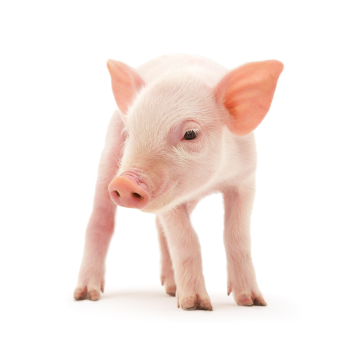Growing human organs inside pigs in Japan
January 6, 2014
Meiji University professor Hiroshi Nagashima is creating chimeric pigs, which carry genetic material from two different species, BBC News reports. It starts off by making what Nagashima calls “a-pancreatic” embryos. Inside the white pig embryo, the gene that carries the instructions for developing the animal’s pancreas has been “switched off.”
The Japanese team then introduces stem cells from a black pig into the embryo. What they have discovered is that as the pig develops, it will be normal except for its pancreas, which will be genetically a black pig’s.
In a lab at Tokyo University, Professor Hiro Nakauchi is taking the next step. He takes skin cells from an adult brown rat. He then uses gene manipulation to change these adult skin cells into induced pluripotent stem cells (iPS) cells, which can develop into any part of the animal’s body.
Nakauchi has succeeded in using these iPS cells to grow a brown rat pancreas inside a white mouse. He is hoping to develop a technique to take skin cells from a human adult and change them in to iPS cells. Those iPS cells can then be injected into a pig embryo.
Island of Dr. Moreau or the end to organ shortage?
The result, he hopes, will be a pig with a human pancreas or kidney or liver, or maybe even a human heart. Not only that, the organ would be genetically identical to the human from which the skin cells were taken.
This is one of the holy grails of medical research: the ability to reproduce a human organ that is genetically identical to the person who needs it. It could mean an end to donor waiting lists, and an end to problems of organ rejection.
But there are many potential obstacles ahead. The first is that pigs and humans are only distantly related. The other problem is getting approval. In Japan, it is illegal to make human-animal hybrids. And animal rights activists object to the idea of pigs, sheep or goats being used as human organ factories. Many more feel uncomfortable about the idea of pig-human hybrids. It brings to mind H.G. Wells’ sci-fi classic, The Island of Dr Moreau.
Prof Nakauchi said his research is completely different. The pigs would still be pigs; they would just be carrying some human tissue inside them. He said there has always been resistance to new scientific breakthroughs. He points to widespread objections to In Vitro Fertilization (IVF) when it was invented in Britain the 1970s. Today, IVF is used across the world, and no one thinks it is strange or unethical.
